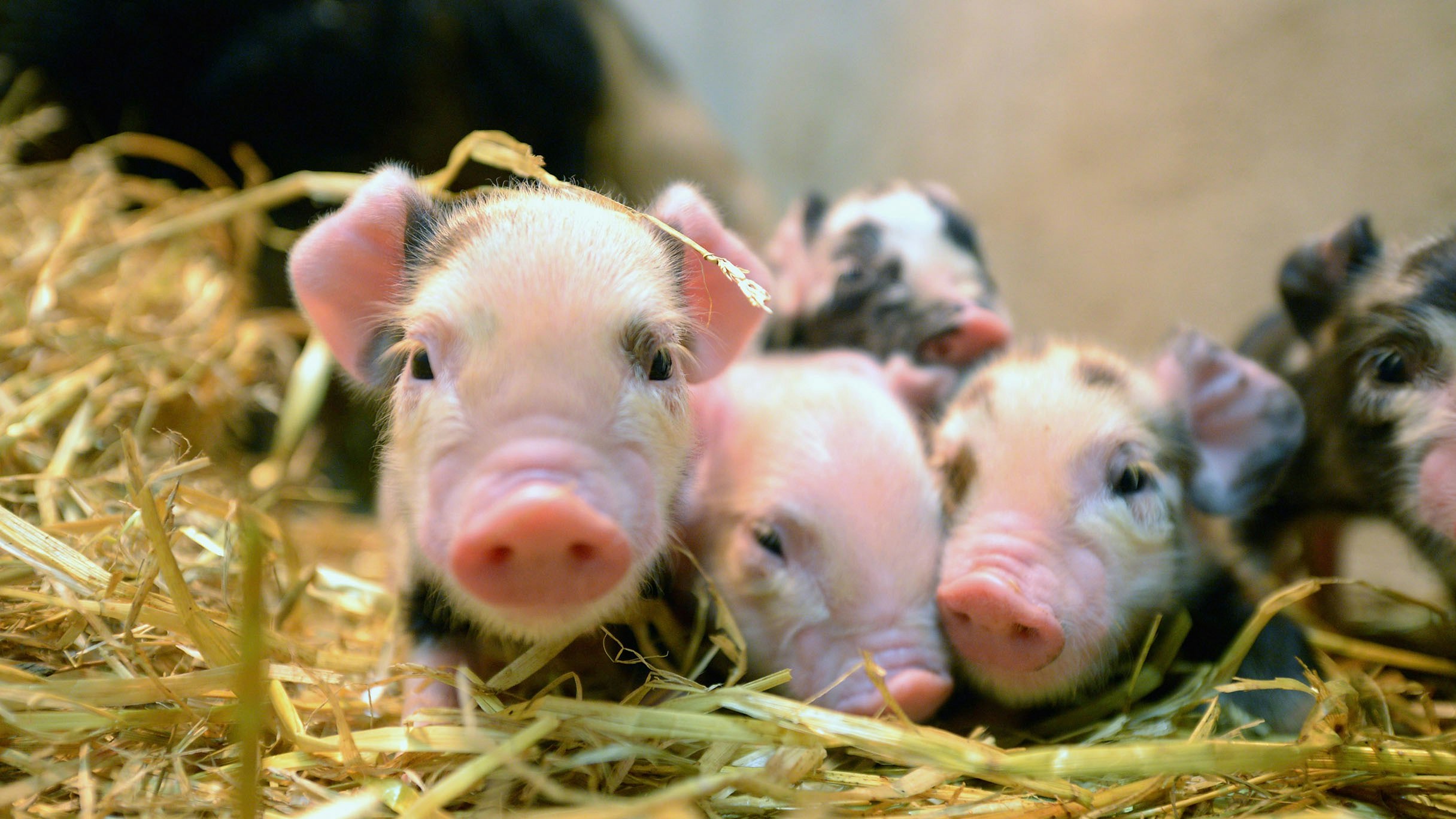Gene-edited technology could potentially be used to create healthier and possibly tastier livestock, and the Federal Food and Drug Administration this month authorized for human consumption five pigs whose genes were edited.
Jon Oatley, professor in the School of Molecular Biosciences in Washington State University College of Veterinary Medicine, sought the FDA approval so that he can demonstrate genetically edited pork is safe to eat.
Gene Modification
Dr. James Pru, professor of animal science at the University of Wyoming, told Cowboy State Daily that the gene-editing technology Oatley is using is different from genetically modified organisms (GMO), such as the Roundup Ready sugar beets that are grown in the Big Horn Basin.
“They've been modified genetically by taking pieces of DNA out of one organism and putting them into another one,” Pru explained.
In the case of Roundup Ready beets, they’ve been modified genetically to be resistant to the Roundup herbicide so the chemical can kill weeds without harming the plant.
With gene editing, the genetic material is altered without leaving pieces of DNA that aren’t normally found in the organism’s cells.
Humans have essentially been altering livestock genetics for thousands of years using selective breeding, which is where animals with favorable traits are used to breed to those traits in offspring.
“Gene editing is a way to potentially accelerate the current form of selective breeding. We've been doing this for a long time,” Pru said.
Proof Of Concept
Dr. Kevin Folta, professor of the horticultural sciences in the horticultural sciences department of the University of Florida, told Cowboy State Daily that the FDA approval does “almost nothing” in terms of getting gene-edited pork to the grocery store shelf.
It does, however, take a step in that direction.
“This is a scientist doing a proof of concept for a breeding trait,” Folta said.
The technology uses gene edits to knock out male-fertility genes so the pigs are sterile. Those sterile male pigs’ testicles are then implanted with another male pig’s sperm so that sterile pig will pass on the genes of an elite pig.
“It’s kind of like artificial insemination where the gene-edited bore becomes the new inseminator. It’s really kind of cool in a way,” Folta said.
Beefier Beef
Pru said the gene-editing technology could greatly improve the profitability of Wyoming’s cattle industry and make this superior beef even tastier for the consumer.
By identifying markers that are associated with positive traits, they can edit the genetic material of animals to make animals with better traits.
One trait is marbling, which refers to the flecks of white fat within the red meat. It adds a lot of flavor to beef. Other positive traits are high fertility to produce more animals and disease resistance to keep them healthier.
Ranchers already select cattle that have these traits when they breed cows, but with gene editing the process is quicker and more precise.
Black Angus cows, because they have black skin, don’t do well in warmer climates such as Brazil and Florida. Cows that have the “slick gene” form fewer hair follicles. So, you get less hairy cows that dissipate heat better.
By gene-editing a Black Angus to have the slick gene, you’d have black cows that stay cooler.
“So there’s a lot of opportunities for gene editing, but it has to be combined with management practices — better nutrition and controlling diseases,” Pru said.
GMO Barbecue
While the process Oatley is developing is new, Pru said that genetically modified foods aren’t.
Besides the Roundup Ready beets, 90% of soybeans grown in the United States are Roundup Ready, he said.
In the case of the Oatley’s FDA research approval, it applies only to those five pigs. Folta called it a “dead-end deregulation.”
“So if you had a barbecue and you roasted those five pigs, that’s it,” Folta said.
Currently, the FDA has approved only two GMO animals for human consumption. This includes the GalSafe pig, which has been genetically altered to prevent allergic reactions to a sugar found on the surface of pig cells. This makes the pig better for the production of drugs and organs for human transplant.
The other is the AquAdvantage Salmon, which has been modified to grow larger than the average salmon.
Safe To Eat
Pru said there’s a widespread misperception that these foods cause diseases and the modification of their genes can be passed on like a pathogen.
“That’s simply not the case,” Pru said.
Folta, who hosts the “Talking Biotech” podcast, said that genetically modified foods have not been shown to have any negative health impacts across thousands of studies on the matter. Despite the well-documented safety of genetic modification and gene-editing, the regulatory process moves glacially slow.
There’s a genetically modified chicken developed in 2011 that can’t spread bird flu, which has killed millions of birds. It still hasn’t been approved for production.
“It would really be nice to see biotechnology be more acceptable to help farms and help animal welfare,” Folta said.
Powerful Tool
As an example of how humans have been modifying genes for a long time, Pru said that selective breeding has increased the amount of milk the average cow produces by four-fold since the 1930s.
This makes gene-editing to increase milk production impractical, but he said the technology could have impacts in the area of reproduction rates, the ability for animals to gain nutrition from the food they eat, and controlling diseases.
These could save the industry hundreds of millions of dollars.
“Gene editing is a really powerful tool we can use,” Pru said.
Contact Kevin Killough at Kevin@CowboyStateDaily.com





